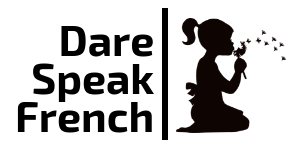On comes up in conversation ALL THE TIME, you will not ba able to avoid it 😉
1/ “On” is used to represent “unknown” people, as a group. In English, it could be “people” or “You” when it is not meant to point out the exact person/s you’re talking to.
Ex.: On doit s’arrêter au feu rouge / People/you must stop at the red lights.
2/ “On” is used instead of “nous (we)”… more and more. It was considered incorrect when I was a child… nowadays, it’s part of everyone’s ordinary language.
But even if it is meant to represent more than one person, it still is a personal pronoun of the third person, singular (like “il” and “elle” and should be conjugated as such. Then the ”Académie Française” (guardian of the French Language Temple !) decided that even if the verb MUST remain singular, everything else must agree with the plural… because there are more than one person in this tiny two-letters word, right?
Ex.: On est allés au cinéma hier soir / We went to the movies yesterday night.
Ex.: On est allés au cinéma hier soir / We went to the movies yesterday night.
3/ More very colloquial usages… that you don’t really want to remember 😉

